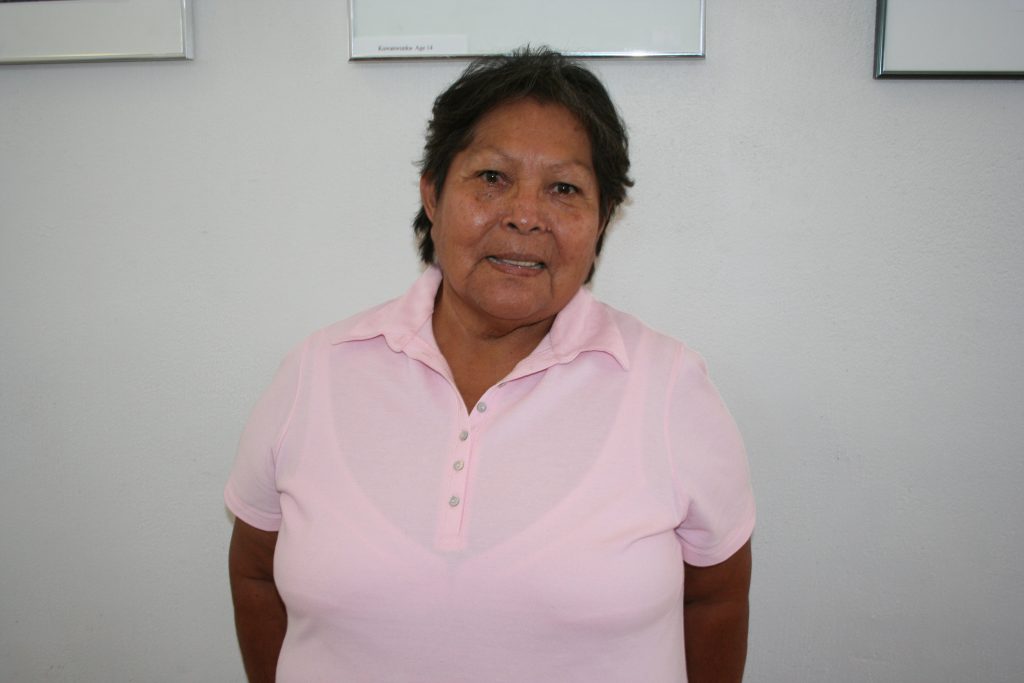
Marlene Sekaquaptewa was a tribal leader, village governor, and devoted family matriarch at the Hopi Reservation in Arizona. She was also a work colleague of mine — but much more than that. She was a beloved mentor, auntie to my family, and inspiration for public service. She died in June after testing positive for COVID-19 at the age of 79, just a few weeks shy of her 80th birthday.
I first met Marlene through her niece, my UCLA Law tribal legal development clinic instructor Pat Sekaquaptewa (pronounced roughly see-KIA-cwop-tee-wah). Along with Pat and her Berkeley Law classmate and colleague Justin Richland, the four of us founded The Nakwatsvewat Institute in 2005, to improve tribal governance and education to better reflect cultural values and community needs. Our first project involved developing a mediation service for the semi-sovereign villages of the Hopi Tribe, and Marlene served as the organization’s cultural consultant.
Little did I know that I was in the presence of the matriarch of a family dynasty at Hopi. Marlene’s mother Helen was a homemaker who wrote a 1969 book on her life story called “Me and Mine.” Her father Emory was a farmer and tribal judge. Her brother Abbott served as a longtime Hopi Tribal Chairman. Her other brother Emory, Jr. wrote the first Hopi dictionary. And her daughter Pat continues the tradition by serving as Hopi Appellate Court Justice. Marlene herself ended up serving on the Hopi Tribal Council and as governor of her village, Bacavi.
Marlene was completely dedicated to two things: her community and her family. She had a knack for recruiting people to help her community, whether it was hosting wayward graduate students like Justin in her basement or making sure guests like researcher Peter Whiteley were honored at ceremonial dances (even if, as Peter recalled at Marlene’s recent memorial service, he had no idea why the dancers were calling him down to the plaza in front of the whole village). She similarly welcomed me and my family into her home, treating us like extended family.
And she loved to talk politics. We had to devote the first 20 minutes of any work meeting to discuss the latest shenanigans by Hopi politicians. But she didn’t just complain. She ultimately helped draft a new Hopi Tribal Constitution in 2012 and had recently helped create an assisted living facility for Hopi elders.
Family was also her passion. She once told me, “Without family, we are nothing.” And she had a big one. Along with her late husband Leroy Kewanimptewa Sr., Marlene had five children. Two predeceased her, Kenneth and Paul, but she is survived by her daughter Dianna Shebala; two sons, Leroy Kewanimptewa Jr. and Emory Kewanimptewa; 14 grandchildren; and 12 great-grandchildren.
To read more about Marlene’s remarkable life and contributions, you can read the recent New York Times obituary. Marlene also narrated in 2018 this PBS special on the Hopi origin story, so you can hear her voice in her native language:
And finally, to get a sense (for those who have never been to Hopi) what the village and ceremonial life is like there, below is a video of the Eagle Dance at Marlene’s neighboring village of Hotevilla, which is appropriate since she was Eagle Clan (determined at Hopi by the clan of your mother).
To say I will miss Marlene is an understatement. She loved Hopi, was immensely proud and knowledgeable about her culture, and opened her heart to everyone she met. She was a strong matriarch who was not afraid to speak her mind. Many in her community and family depended on and loved her. But we will continue her work at Hopi and other tribal communities in her memory, with the lessons she taught us over the years as both a guide and a lifelong gift.
Rest in peace, Marlene, and thank you.


